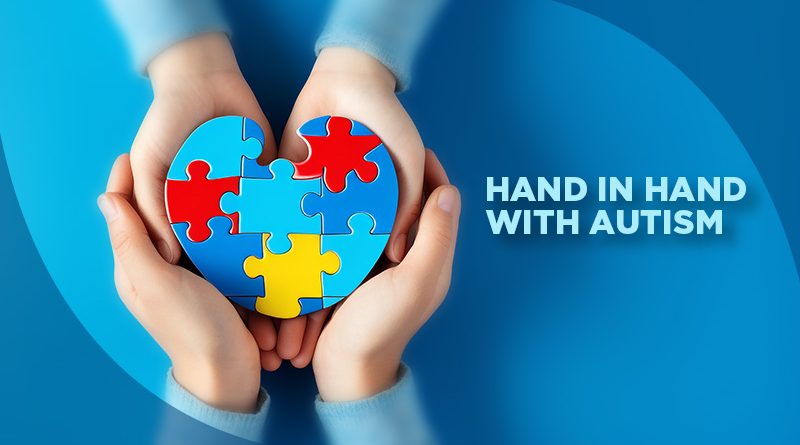The Voices of Neurodiversity: Celebrating World Autism Month
We live in a world where diversity is increasingly celebrated and recognized. So, it stands to reason that the voices of neurodiversity deserve to be heard and recognized as well. Neurodiversity encompasses a spectrum of neurological variations, including autism, ADHD, dyslexia, and more. Rather than viewing these differences as deficits to be remedied, they should be embraced and celebrated as integral aspects of human variation. Join GrantWatch as we show our appreciation for the diversity of mankind and make strides to ensure grant funding for autism.
Sensory Challenges
Neurodivergent individuals are unique in the way they process sensory information, especially when it comes to processing. That is to say, receiving and interpreting the information they get from sight, sound, touch, taste, interoception, and proception. Simply put, this means that these individuals may find certain sensory information overwhelming. Reactions vary widely but the main takeaway is that overstimulation can be enormously stressful. Environments that incorporate loud noises, echoing sounds, vivid colors, and overt patterns can be a challenge to endure. Certain textures and surfaces may be either extremely soothing or irritating. And as for food? Taste, consistency, and texture play a major role in what is acceptable to eat.
What’s more, neurodivergent individuals also have unique interoception and proception. Interoception refers to our ability to interpret the signals we receive from our bodies and reacting accordingly. For example, being able to interpret hunger pains or thirst. Proception has more to do with being able to pick up on social cues. For example, knowing to run when there is danger. However, these same sensitivities can be seen, from a different perspective, to be positive traits. Neurodivergence inlocks talent, creativity, and extraordinary powers of perception.
A Need for Growing Awareness and Acceptance
Despite growing awareness, the voices of neurodiverse individuals often remain marginalized in societal conversations. Stigma, misconceptions, and a lack of understanding continue to pose significant challenges for those navigating neurodivergent experiences. Yet, within these challenges lies a wealth of unique perspectives, talents, and insights that have the potential to enrich our communities and propel innovation forward.
Here are some famous neurodivergent individuals who made our world a better place:
- Charles Darwin
- Albert Einstein
- Emily Dickinson
- James Joyce
- Thomas Jefferson
- Carl Sagan
- Simone Biles
- Sir Anthony Hopkins
- Virginia Woolf
- Daniel Radcliff
- Billie Eilish
- And so many, many others
One Final Note
The voices of neurodiversity are not only valuable but vital to our diverse world. From understanding the challenges faced by neurodiverse individuals to recognizing the immense contributions they offer to various aspects of society; it underscores the importance of fostering acceptance and inclusion. When we amplify neurodiverse voices and advocate for their rightful place in our collective history, we move closer to building a world where every individual is recognized, respected, and celebrated for their unique neurological makeup.
In honor of World Autism Month, GrantWatch has a list of funding opportunities that we think are particularly good:
Funding to Celebrate the Voices of Neurodiversity
- To begin, funding for teachers and families to support children with autism. Grants are available for summer camp tuition, special services, and home equipment which is not covered by insurance, as well as specialized classes,
- Grants to nonprofits, school districts for projects to serve underrepresented youth with mental health issues, intellectual disabilities, learning disabilities, and/or substance use disorder.
- Fellowships to undergraduate students at IHEs in multiple locations for research studies related to the neurosciences. An LOI is required prior to a full proposal.
- Up to $30,000 for nonprofits and public benefit corporations, and schools to build organizational capacity. Funding is for organizations providing services to youth and young adults with intellectual disabilities.
- Up to $5,000 to individuals with autism and their families for urgent treatment needs. The program is intended to meet the treatment and support needs of those impacted with autism and their families.
Additional Funding to Celebrate the Voices of Neurodiversity
- Funding up to $500 to nonprofits and schools to develop or enhance programs that provide direct services to children with autism spectrum disorder. Grants are for innovative programs and offer educational approaches that meet the unique needs of children with ASD.
- Grants up to $25,000 to nonprofits for programs and activities in the areas of autism, arts and culture, health and human services, literacy and education, and Jewish life.
- $1,000 grants to New York nonprofit organizations for programs and initiatives to improve the lives of children and youth with autism. Funding is for items and activities such as books, equipment, camps, music programs, and other programs that directly assist those with autism through early diagnosis and treatment.
- Families and children with autism may apply for funding to implement safety measures and provide safety-related resources. The purpose of the program is to keep people and families with autism safe in their communities.
- And Finally, grants to individuals and families with children diagnosed with autism to improve their quality of life. Funding addresses a variety of needs, including assistance with medical bills, installing playground equipment for special needs children, and helping with the financial needs of children accepted into medical trials for autism.
About GrantWatch
With close to 8,000 grants currently available, GrantWatch.com is the leading grant listing directory. Upgrade to a MemberPlus+ subscription to view the full grant details, including eligibility criteria and application information. For more information, you can also visit the GrantWatch FAQ page. To see the great value of all 20 of the top GrantWatch features, click here.
See the latest episode of GrantTalk, powered by GrantWatch, with host Libby Hikind. You don’t want to miss this. Visit us on YouTube: https://www.youtube.com/grantwatch/featured
Don’t forget to get your copy of The Queen of Grants: From Teacher to Grant Writer to CEO, by Libby Hikind.

